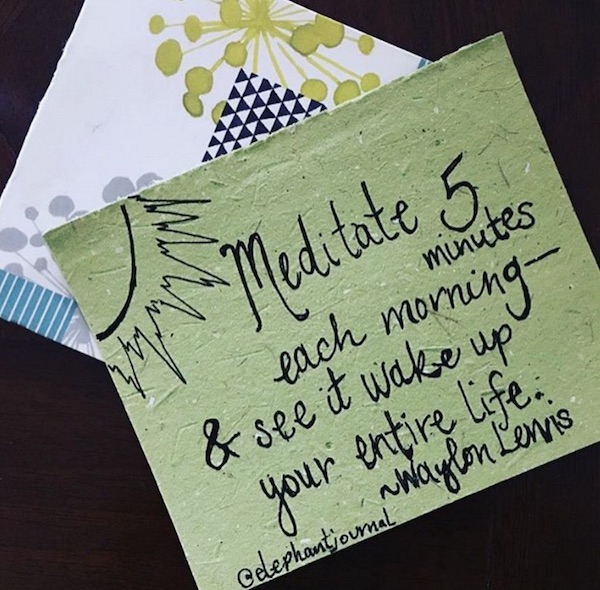Last year, I took an “Introduction to Buddhism” course and did Vipassana in India.
One of the most important things I’ve learned in my courses is that how we start our morning dictates the rest of our day.
Doing a few practices in the morning during my courses shaped my day and helped me sleep better. To this day, even when life throws me off course, I maintain my practice. Self-discipline requires time and effort. However, once we experience the benefits of our spiritual habits, we start valuing them and find time for them.
Oftentimes, we think we need to do big things to get big results; but it isn’t true. We can learn simple habits that require little time but impact our day.
It might be nearly impossible to live like monks and nuns, but I have learned a few things from them that can set the tone for our entire life—not just our day.
Here are two practical Buddhist practices we can add to our morning routine:
1. Breathing exercise.
A short meditation in the morning has an enormous impact on the rest of our day. This is because our mind is usually at its calmest during the first minutes of waking up—it’s very delicate and refined. That said, it’s imperative to train it early on before the mental activity kicks in. Everything that we imprint on the mind in the morning, manifests during the day.
We often associate meditation with sitting cross-legged, but that’s not necessary. We can do this breathing exercise while we’re still in bed, before grabbing our phone or distracting ourselves with anything else.
Focusing on the breath calms us down. Therefore, a little meditation in the morning keeps us calm and grounded the entire day.
As we’re sleeping on our backs, we can typically place our hands on our stomach and close our eyes. Focus on the air coming in from your nostrils, going all the way down to your chest and stomach, and feel your hand going up with your stomach as you inhale. Then, focus on the air coming out and retrace all the steps backward. Five minutes of meditation every day in the morning is enough.
With time, we might feel that we want to expand the five minutes to 10 or 15 minutes. Do so, as long as you’re comfortable with it.
2. Set an intention.
We had three daily meditation sessions during my “Introduction to Buddhism” course in India. We were asked to set an intention before and after starting our meditation. Also, we had to do the same upon waking up before we started our day.
It was a little difficult the first couple of days to do this practice—oftentimes, I didn’t know what intentions I should set. With a little help from our teacher, this practice became my favorite, and I realized why setting an intention in Buddhism is of vital importance.
An intention means the direction of our behavior. So, setting an intention first thing in the morning gives us the drive to accomplish something and be better during the day. The intentions we set in the morning—before doing anything else—subconsciously stay with us all day long and influence us to a great extent.
For instance, we can say the following: “Today, I will try my best not to harm any living thing. Today, I will not lie, hide the truth, or deceive anyone. Today, I will be kind and compassionate toward my family, friends, and pets.”
We can set any spiritual intention that we feel we need to cultivate more often. It doesn’t take more than one minute to release an intention to the universe.
~
Relephant:
5 Pieces of Buddhist Wisdom that can Impact your Life.
~
Author: Elyane Youssef
Image: Flickr/Hillary Boles; elephant archives
Editor: Yoli Ramazzina
Copy editor: Nicole Cameron
Social editor: Nicole Cameron

 Share on bsky
Share on bsky




Read 8 comments and reply